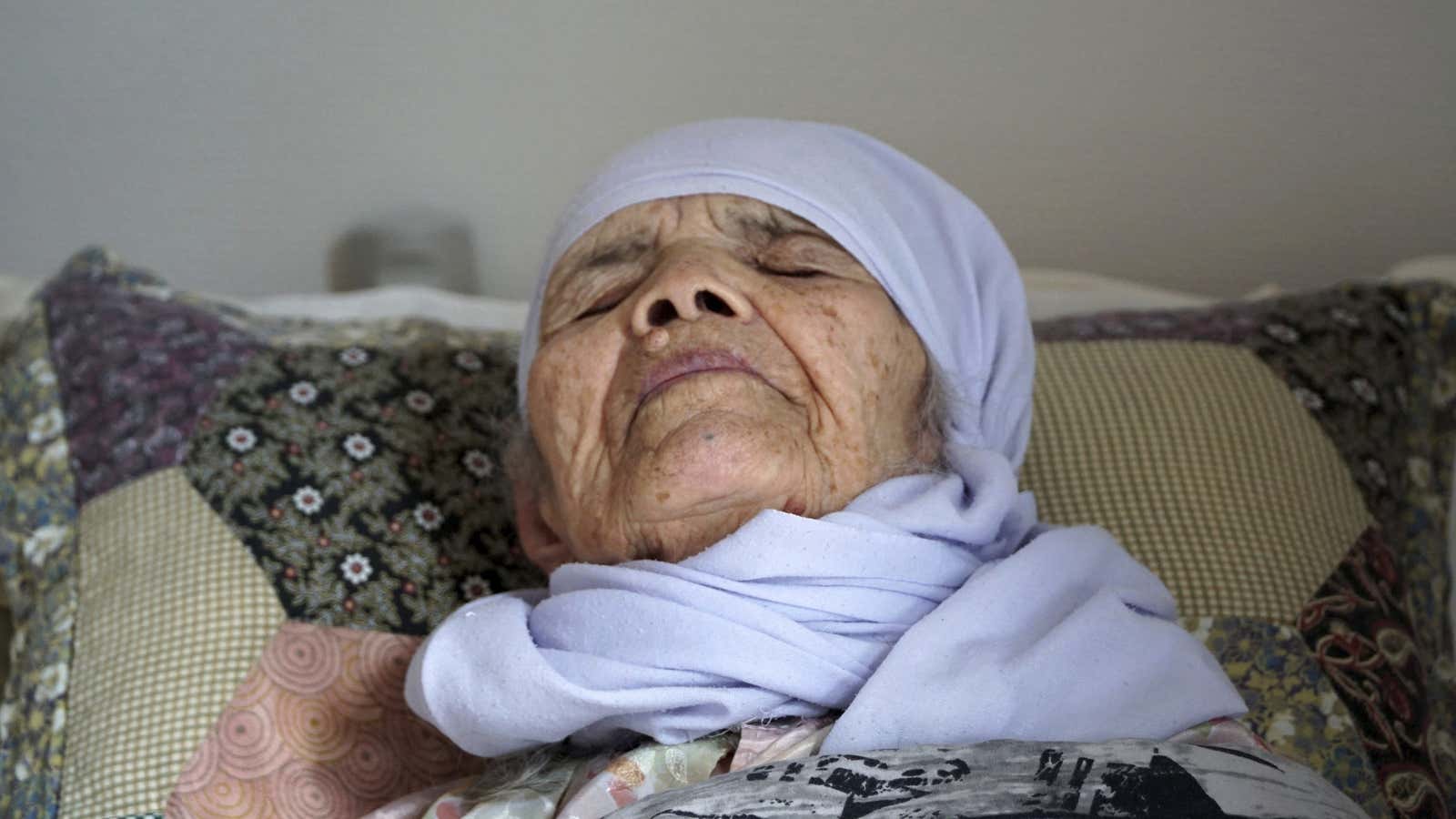Sweden, long regarded as Europe’s most refugee-friendly country, is no longer making a name from its generosity. The Scandinavian country is on a mission to quickly deport the rejected asylum seekers lingering within its borders. Among them is 106-year-old Bibikhal Uzbek, a blind, disabled grandmother from Afghanistan.
At the height of Europe’s refugee crisis in 2015, Uzbek made the perilous journey to Sweden from her home in the northern city of Kunduz with her 17-member family, traveling through Iran, Turkey, and the Balkans. Uzbek’s journey—which regularly required her to be carried on the backs of her 67-year-old son and her 19-year-old grandson and made headlines—may have been for naught.
Just weeks from her 107th birthday, Uzbek was informed by the Swedish government that it had rejected her application for asylum, forcing her to return to Afghanistan. Once Uzbek realized her application was turned down, her health quickly deteriorated and she suffered a stroke.
In a recent statement, the Swedish migration agency confirmed that Uzbek was rejected, noting, “in general when considering asylum and advanced age, advanced age is not in itself grounds for protection.”
Sweden is able to deport Uzbek and many Afghans like her because it deems some parts of Afghanistan—but not the whole country—as “safe” places to return. Asylum seekers from these designated safe zones can often have their asylum claim rejected and end up facing deportation. Sweden classifies Kunduz as one of these safe areas.
This “safe” classification system is being used to reject and deport Afghan asylum seekers across the European Union (EU). Made possible by a controversial agreement the bloc signed with Afghanistan in 2016, it has been slammed by human rights groups, which argue the EU is failing to acknowledge that political tensions in Afghanistan are getting worse.
The number of civilian deaths in the Afghan war reached a record high in 2017, according to the UN. The worst attack of the year occurred in Kabul, when a truck bomb killed at least 150 people. On the same day, a group of rejected Afghan asylum seekers deported from Austria and Sweden entered Kabul’s airport, according to a report by New York Times. Kabul is deemed by the EU as a safe area within Afghanistan.
The sharp increase in civilian deaths in the war-torn country forced Germany to temporarily halt mass deportations of Afghan asylum seekers (it decided to only deport Afghan asylum seeker in exceptional cases). Other European countries have, however, refused to change course.
